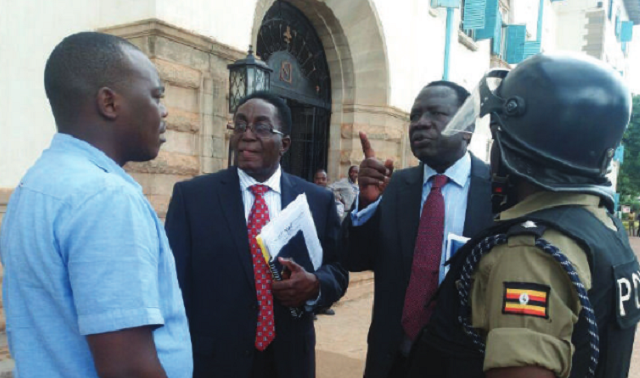
Katunguka says the problem is not about Ddumba but arises from the Universities and Tertiary Institutions act that “democratizes management”.
He says the Universities Act needs to be amended to reduce membership of the university governing body, the University Council, from the current 23 -26 members to 9-11 people. He says they should not be elected but be appointed by the government.
Katunguka also proposes election of vice chancellors, deans and deputy vice chancellors is replaced with appointment by the President and vetting by parliament.
“Associations in public universities should be regulated and their powers reduced. There is a lot of infighting and sectarianism. Kiggundu (Mohammad Kiggundu, the chairman MUASA) is the boss. People at Makerere do nothing but fight every day. With this administrators will shift from fighting for their survival to working.”
After such a clean- up of management, Katunguka suggests, the government can increase resource allocations to universities.
He explained that, like Makerere, Kyambogo gets money from government to add to the fees private student pay and smaller sums from commercial ventures of the institution. This year, Katunguka said, Kyambogo University received Shs40 billion from government and they hope to collect Shs55 billion from students which will give them Shs95 billion to work with in the course of the year to cater for 25,000 students. About Shs600 million is got from commercial activities like the canteen and the university’s farm and Shs3billion is got from donors. He explained that every month, the university contributes Shs300 – Shs400 million to pay salaries of all workers.
“We have not had a major strike in the last three years because we have learnt and improved our financial management,” he said, “We know how much is collected from students and we are able to report on financial transactions quickly.”
Commenting on the top-up pay that lecturers receive on top of their salaries, he said Kyambogo pays it every month.
“Once you make realistic budgets, this money can be paid,” he said, “the mistake Makerere made was to increase its allowances by 70%.”
He blames that decision on staff associations that have taken over the management and budgeting of the university or what he calls “democratisation”.
But Kasozi who wrote a book titled ‘Financing Uganda’s Public Universities: An obstacle to serving the public good’ disagrees on government giving public universities more money.
He favours a financing model that “does not burden the government and parents”.
“The problem with the public universities is they are treated as part of the government and everyone feels they have a stake in them,” he says, “but if various avenues of funding are identified, they would save universities from unending crisis.” He mentions the recent introduced Student’s Loan Scheme and proposals of endowments whose profits can be re-invested in stocks or real estate and later be used to finance university programmes.
Meanwhile, for others like Dr. Tanga Odoi who is the university’s chairman of convocation and a big critic of the Ddumba administration, Makerere problems started way back in the 1990s during the time of Prof. John Sebuufu.
The Vice Chancellor Uganda Christian University (UCU), Rev. John Musisi Senyonyi, says problems at public institutions are mainly a result of external influence. He says students at Makerere are not guided.
“They need to come up with policies that not only guide demonstrations but also give students an opportunity to be heard,” he told The Independent in an interview. As the debate rages, the university remains closed, the parents of private students dread having to pay more money in hostel fees and Ddumba waits for the Commission of Inquiry proposed by the government.
“The Commission of Inquiry will take some time,” he said in the interview, “It can’t take one month but it will define the next course of action.”
****
editor@independent.co.ug
 The Independent Uganda: You get the Truth we Pay the Price
The Independent Uganda: You get the Truth we Pay the Price



